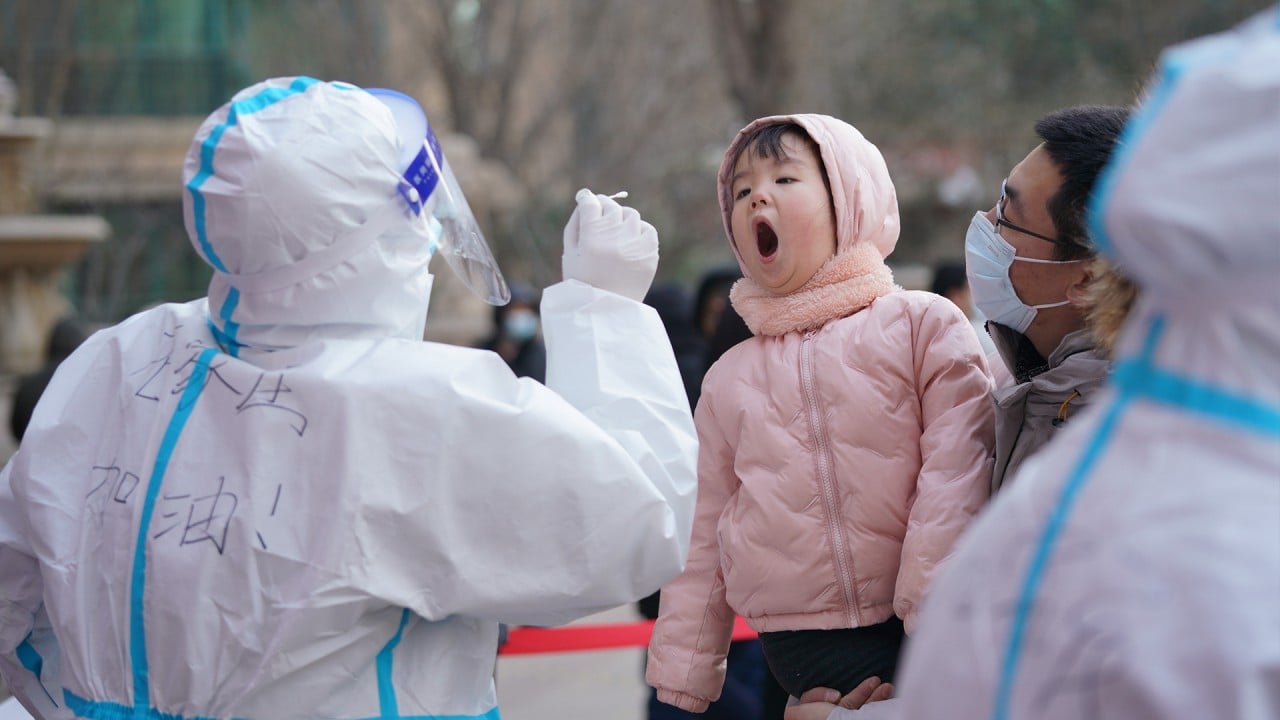
Coronavirus: 9 million vaccinated in China’s free inoculation drive
- Health officials outline plans to ramp up national immunisation programme as Hebei province battles surge in cases
- Country aims to give 50 million people the jab by Lunar New Year before rolling out nationwide programme
China said on Saturday it has vaccinated 9 million people as it confirmed that it will offer free Covid-19 vaccinations to the whole population.
The country is preparing to vaccinate 50 million people with a two-dose regime ahead of the peak travel season for the Lunar New Year, and is then planning to roll out a free national immunisation programme for the general public.
“Since the vaccination programme started, a total of 7.38 million people have been vaccinated, together with an earlier 1.6 million people from high risk groups, over 9 million have been vaccinated,” Zeng Yixin, the deputy director of the National Health Commission, told a press conference.

09:50
SCMP Explains: What's the difference between the major Covid-19 vaccines?
Zeng confirmed the government would shoulder the costs of the vaccines for all residents – something he last week said had been agreed in “principle” – but added they would be voluntary.
He also vowed to clamp down on institutes that charged people for vaccinations. “We have found isolated locations that charged and we have immediately requested for that to be stopped through issuing an edict from the national authorities. This was related to the high-risk group vaccination programme,” Zeng said.
Li Tao, an official from the National Healthcare Security Administration, told the press conference the costs will be covered by the health insurance fund and the national budget.
China ‘in close communication’ with WHO on Covid-19 origins mission
There have been concerns about whether the current vaccines will protect against the more infectious strains of Covid-19, first found in Britain and South Africa respectively, and which have spread to many parts of the world.
“These results have reinforced our confidence that our vaccines have the ability to neutralise new mutated variants equally. So far, it appears that mutations in this coronavirus do not affect the protection generated by vaccines, this is clear,” Zeng said.
Zeng also said over 140,000 people in Hebei had been vaccinated, and the government is confident it can keep the current outbreak in the northern province, which borders Beijing, under control.

01:50
Coronavirus: Hebei province reports 120 new local cases in China’s biggest Covid-19 rise in months
The outbreak has resulted in 137 symptomatic cases and 197 asymptomatic infections as of January 8. China lists asymptomatic cases as a separate category contrary to the practice adopted by other countries and the World Health Organization.
Shijiazhuang, the provincial capital, has gone into lockdown, with transport in and out of the city suspended. Residents in Shijiazhuang and at least two other cities are required to stay at home for seven days.
Hebei has also called in help from other provinces with 1,000 medical workers from other parts of the country arriving in Shijiazhuang on Wednesday and a further 2,000 due to follow.
China’s diplomacy leans on vaccine outreach but beware soft power failure
This was also a tactic used in Wuhan, the centre of the first Covid-19 outbreak, to relieve the stresses on the health care system.
With 9 million vaccinated so far, China still has a long way to go in terms of inoculating its 1.4 billion population.
In a briefing in December, one Chinese drug maker Sinopharm said it was working on expanding its production lines to produce 1.3 billion doses this year while another major pharmaceutical company, CanSino, aims to produce 100 to 200 million doses annually. Vaccines from other Chinese firms are also in the pipeline.
Meanwhile, the US and western European countries are racing against time to vaccinate the population as case numbers continue to rise. The UK has inoculated about 1.5 million people, while over 7 million doses have been administered in the US, according to data by Bloomberg.
Pfizer raises hopes vaccine can fight new coronavirus strains
On Saturday, China’s Centre for Disease Control said most adverse reactions to domestically made vaccines were mild, and monitoring data suggested the chances of a severe adverse reaction were about one in a million.
It said the chance of an abnormal reaction was six in 100,000, most of which were allergic skin rashes. Other allergic reactions, such as swelling, have also been recorded.

